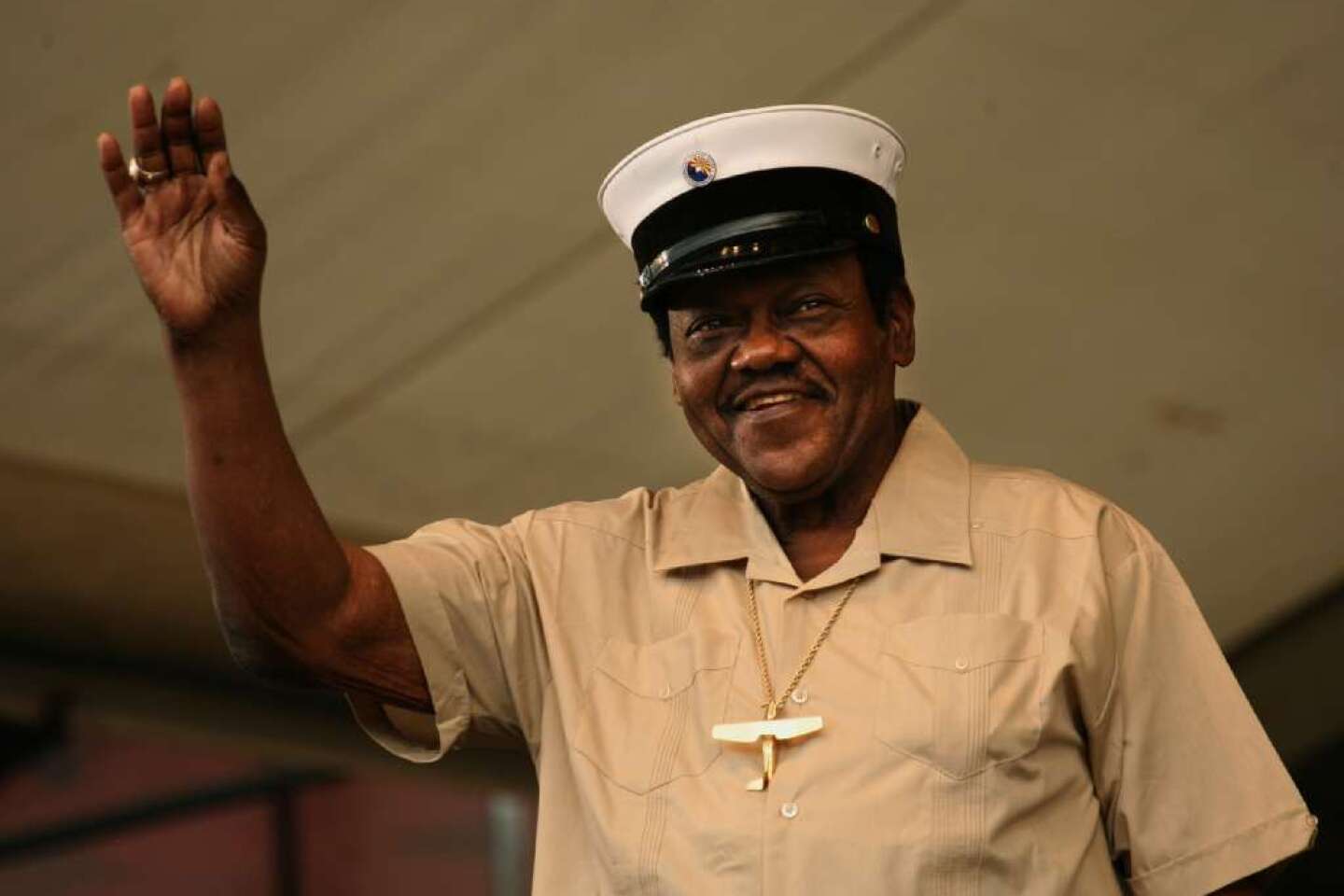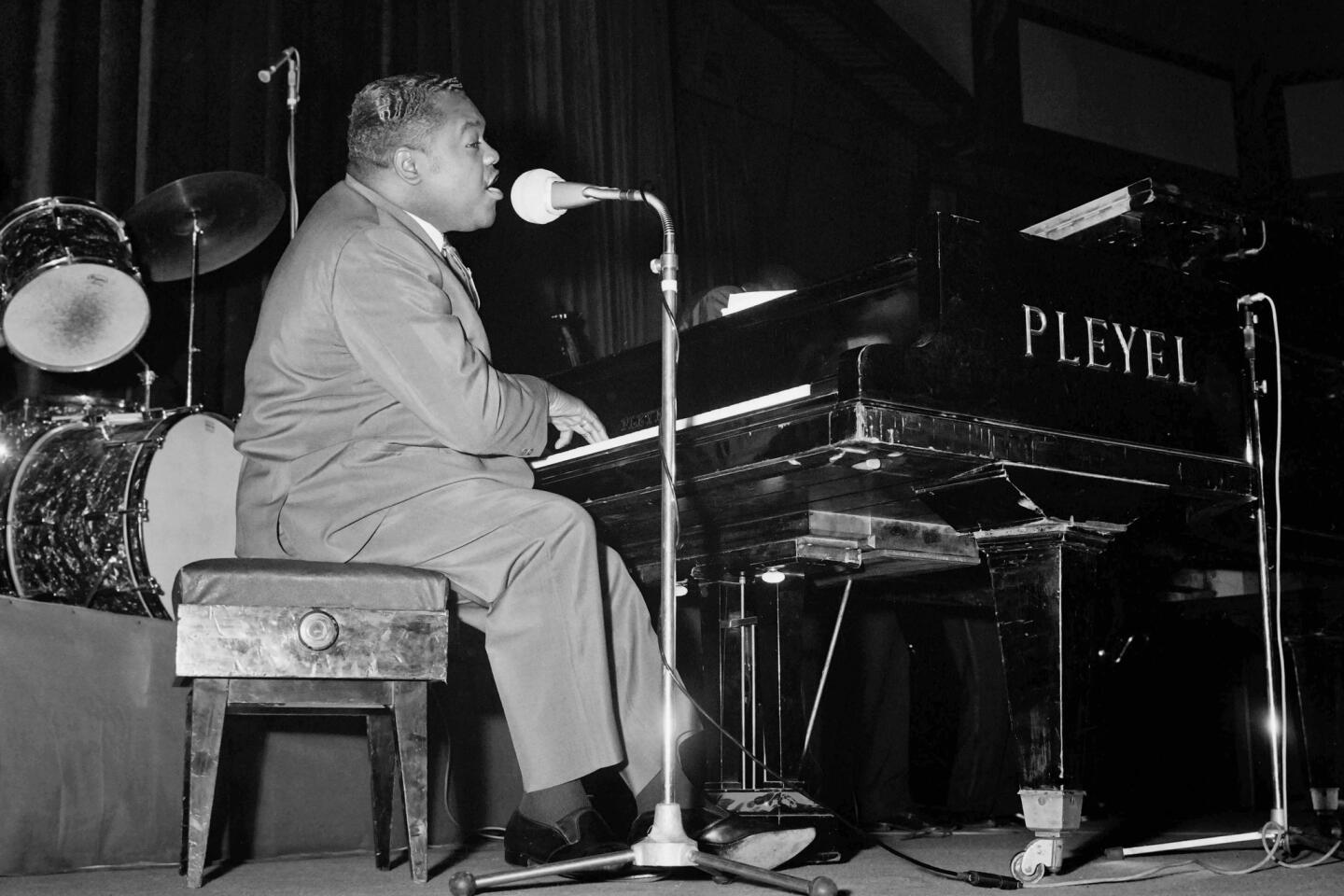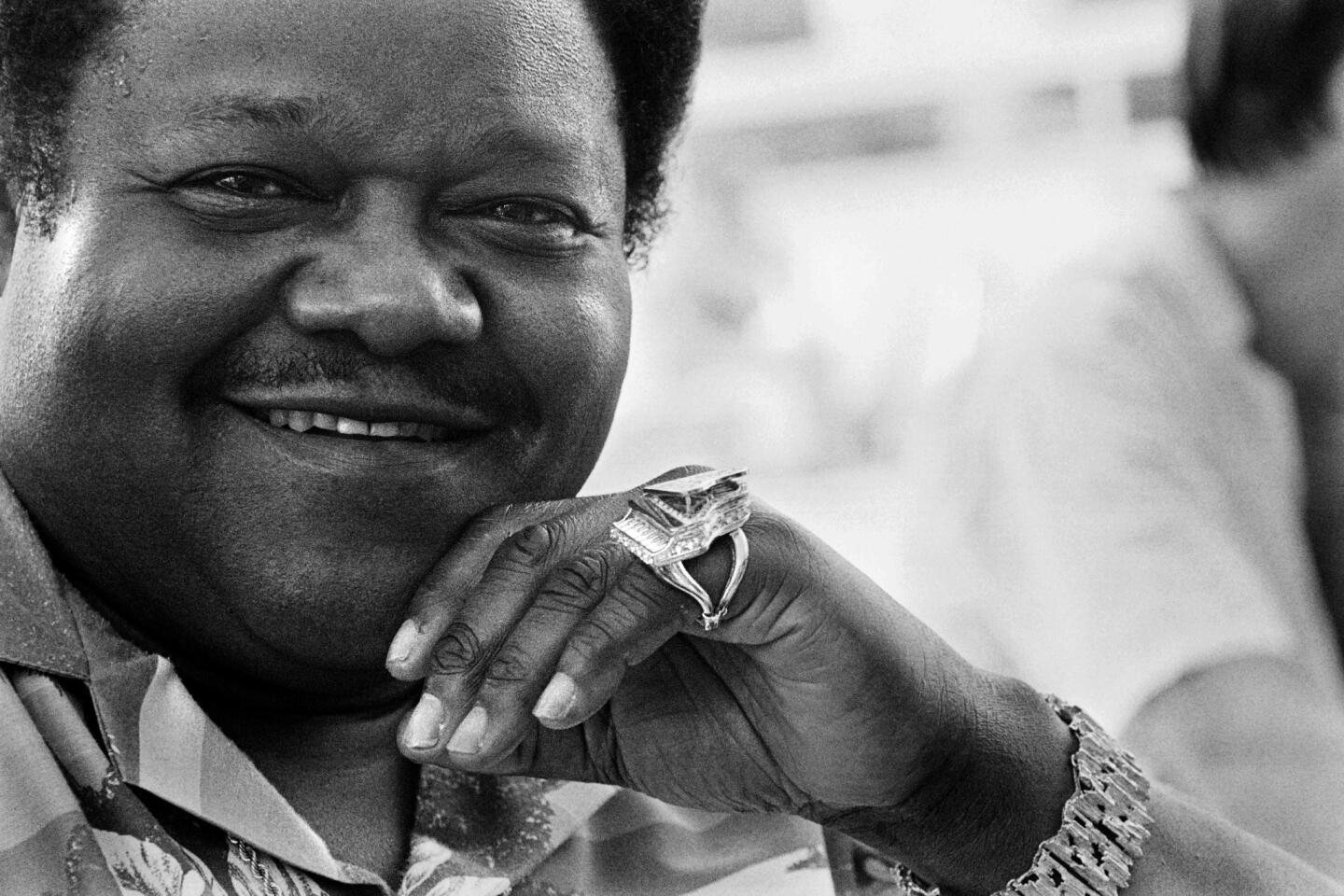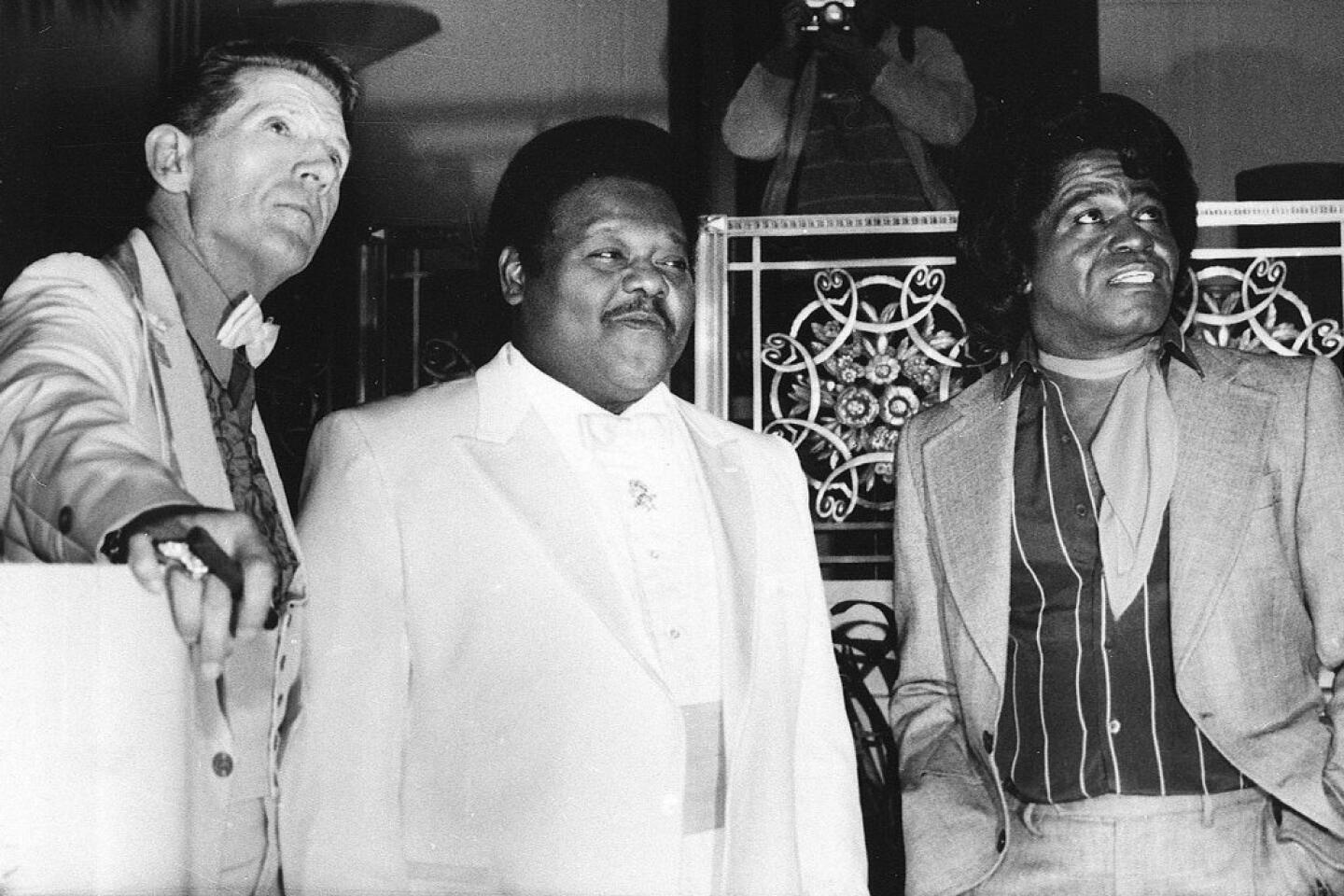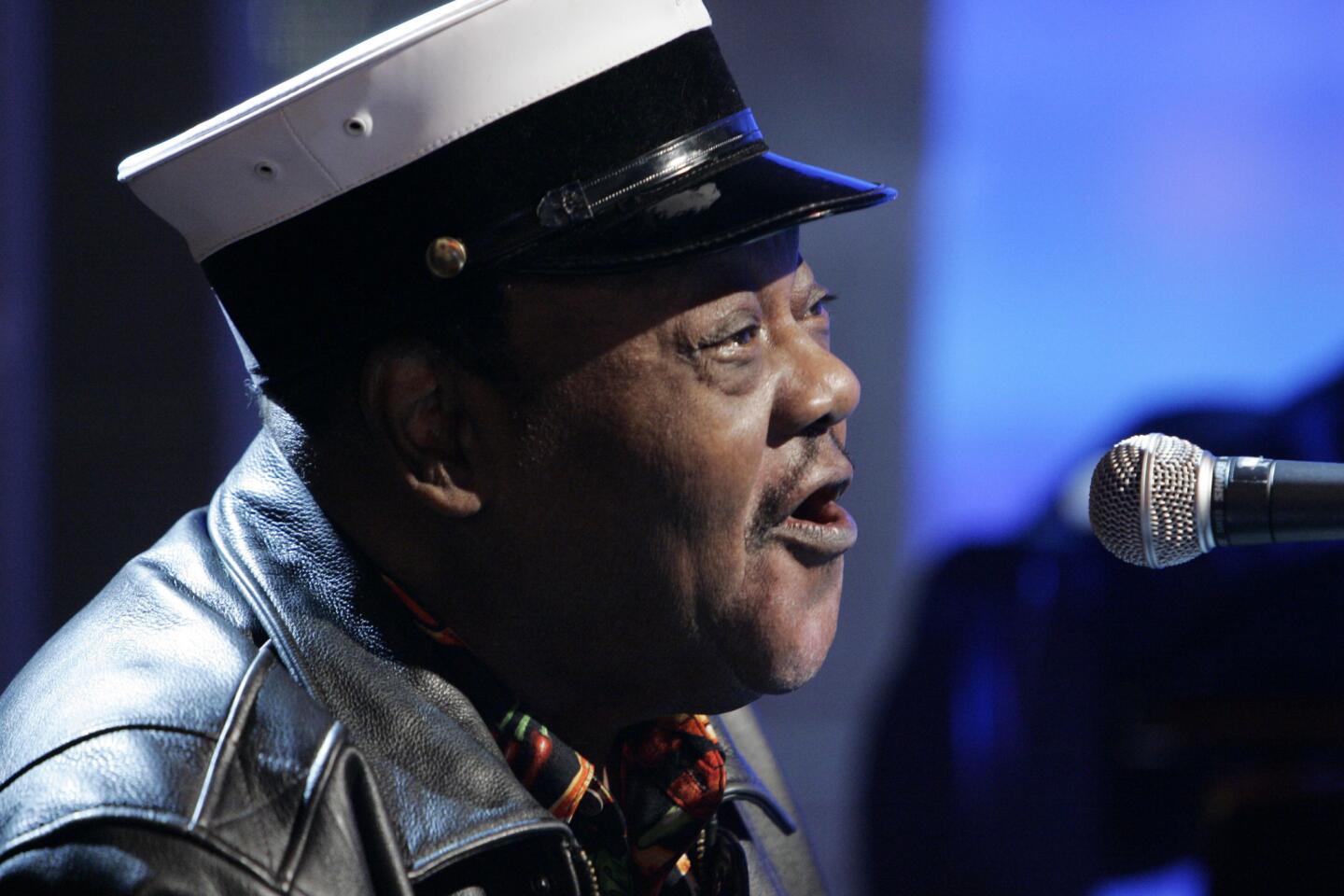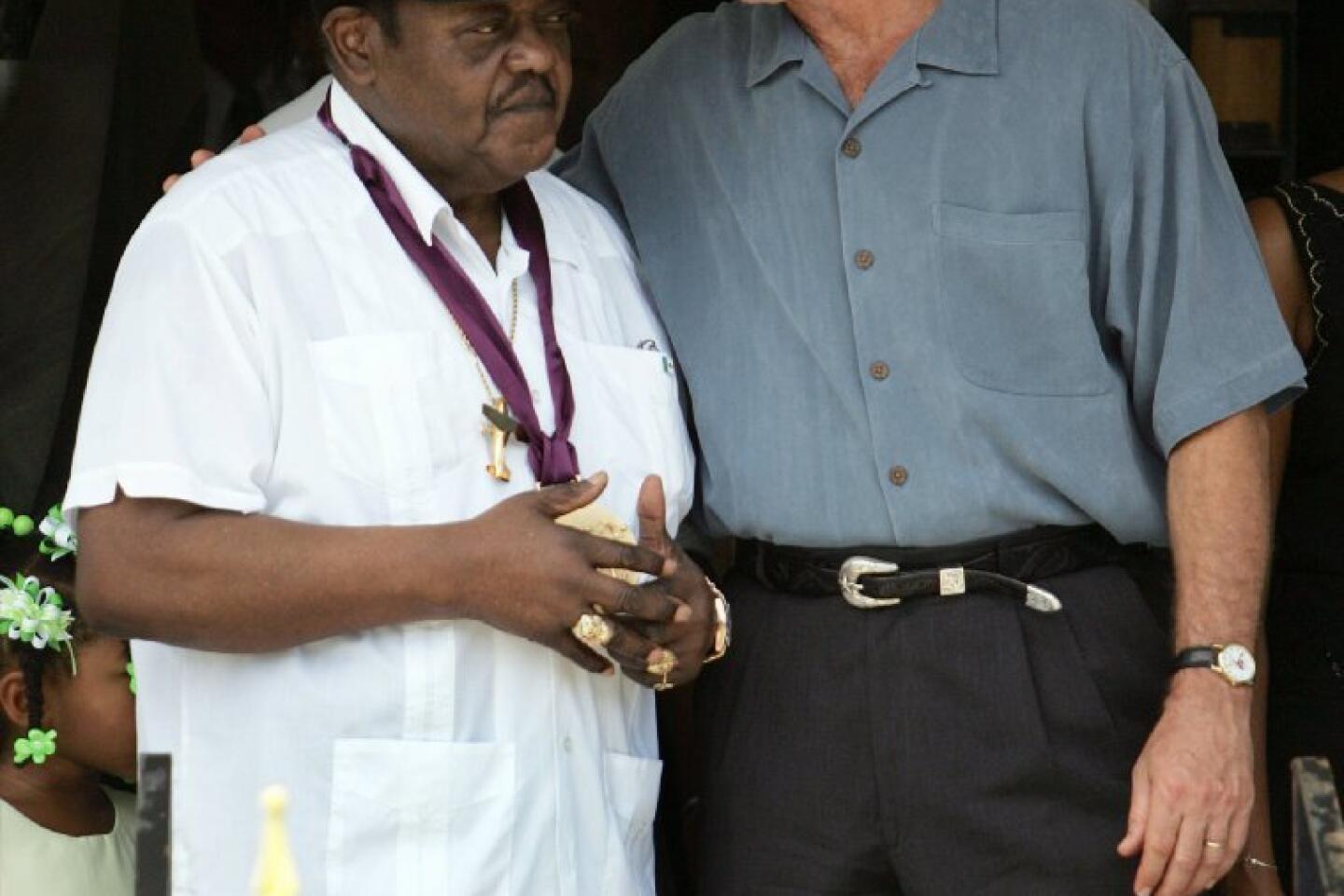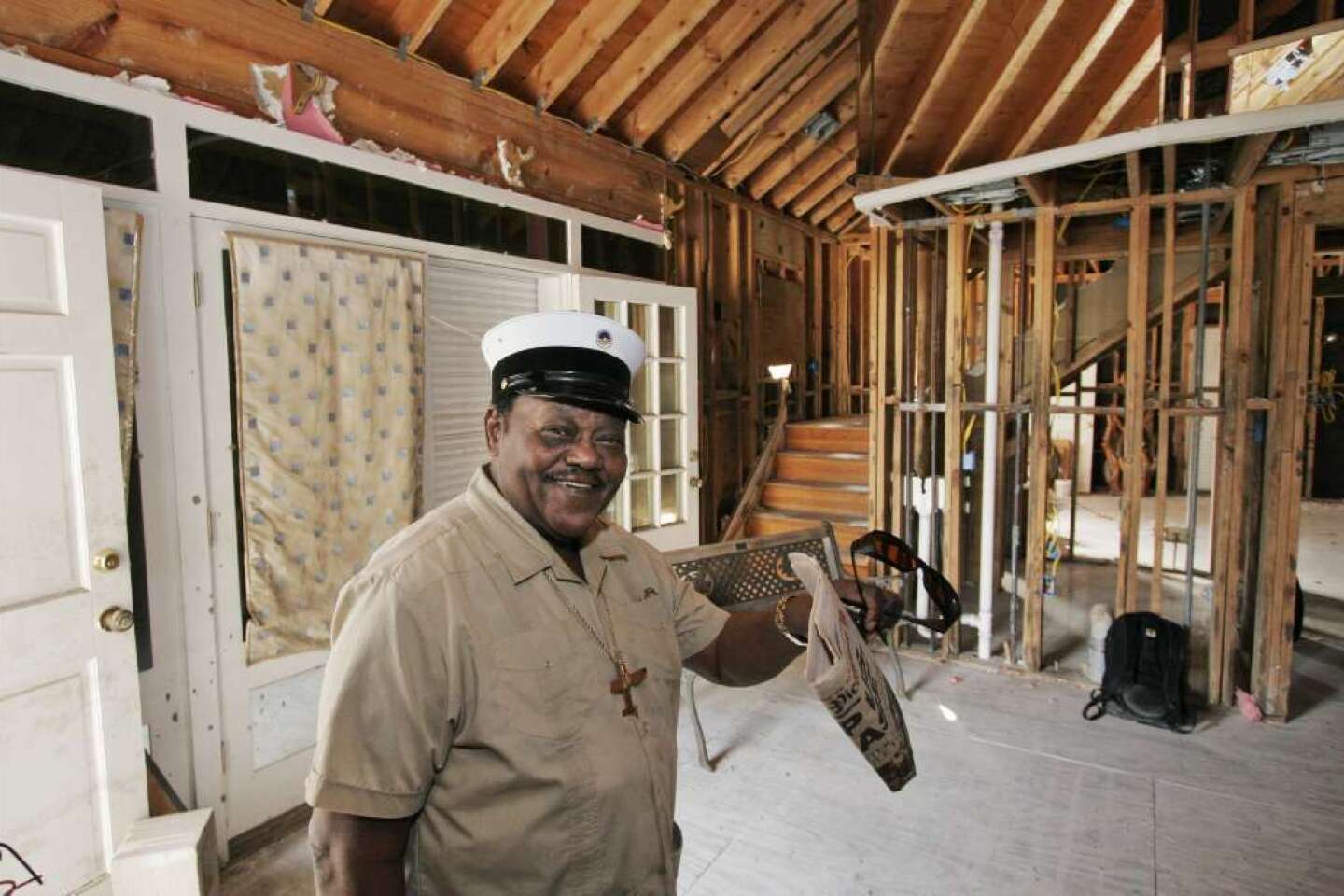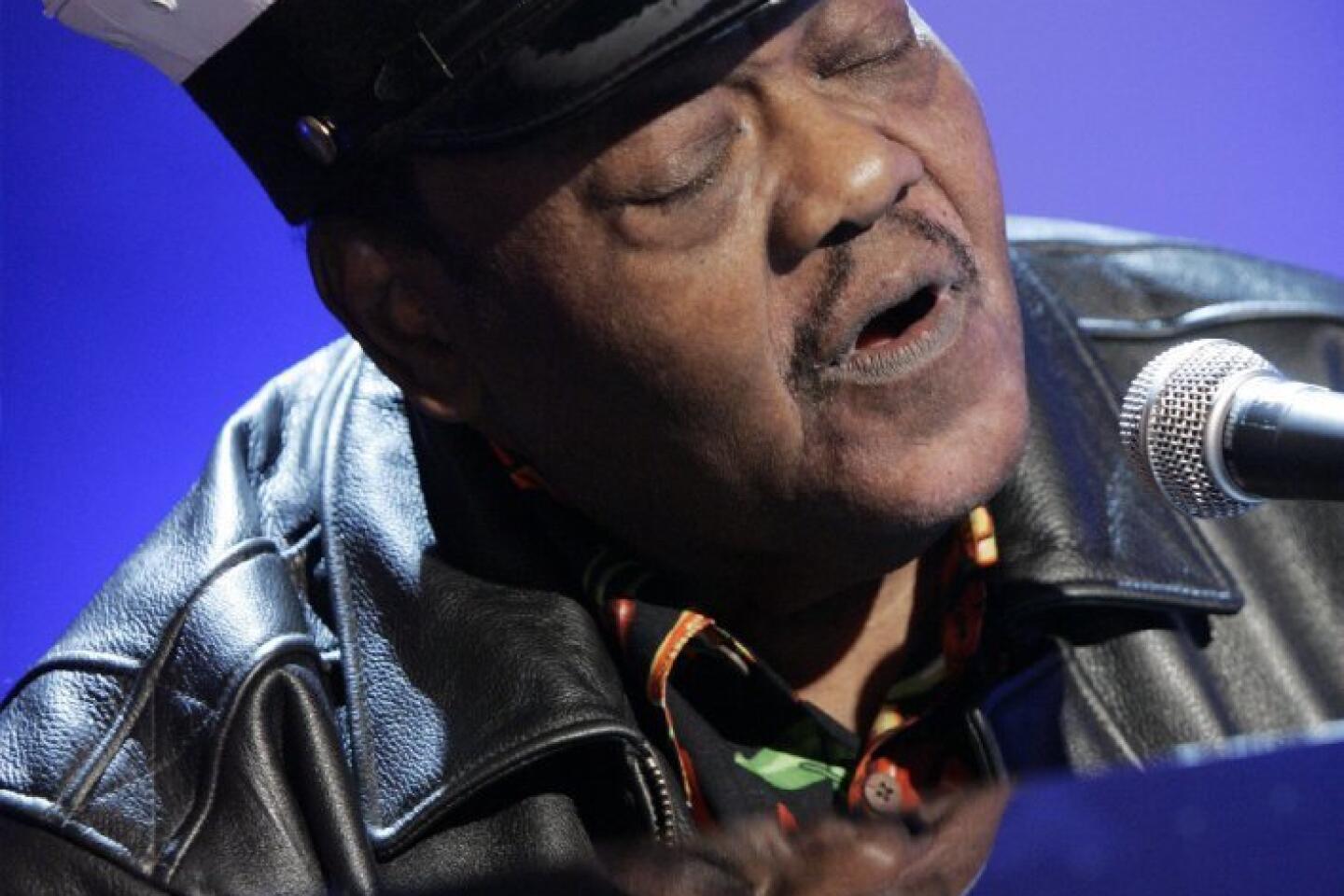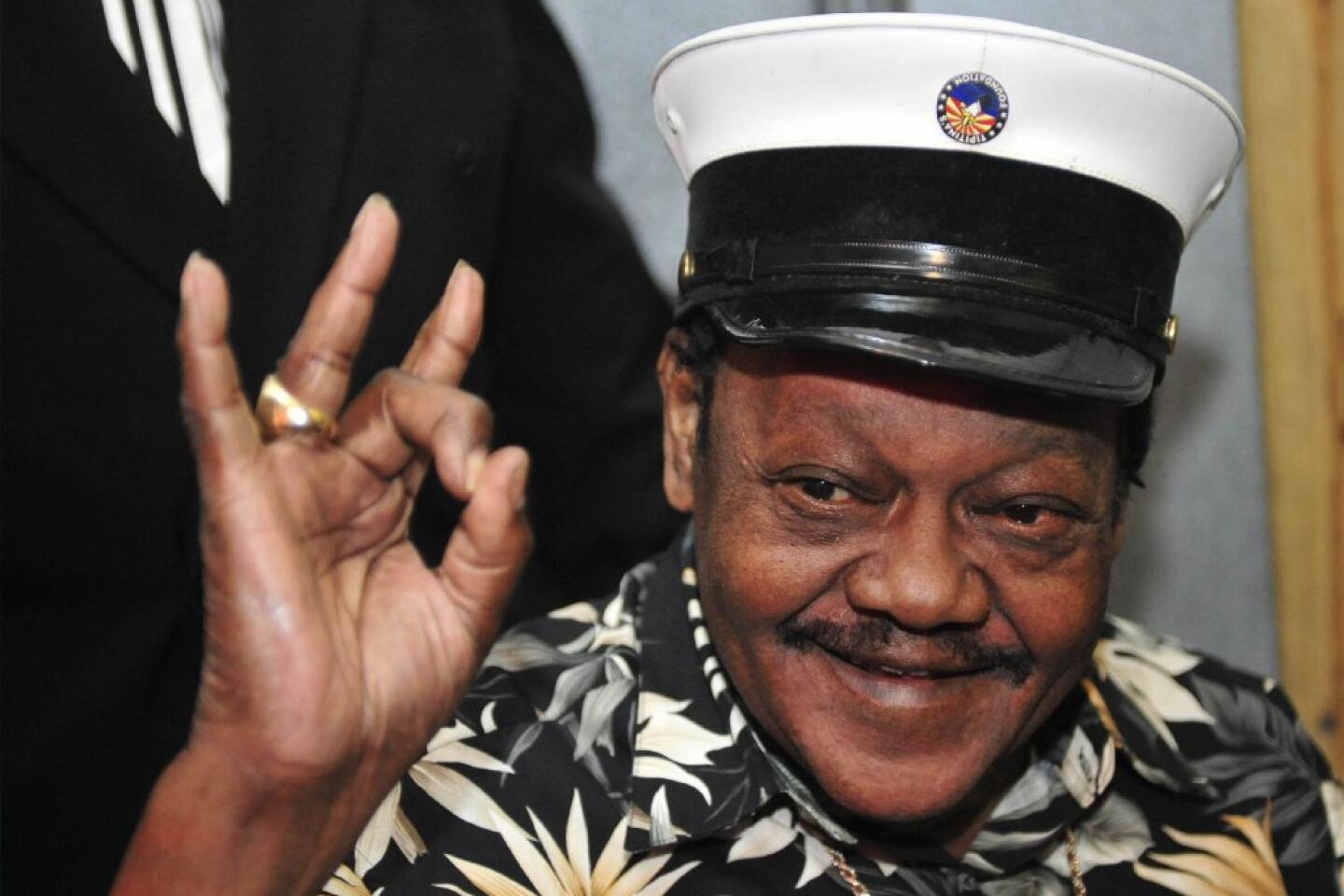Appreciation: Fats Domino put the joy in rock ‘n’ roll
- Share via
If Elvis Presley personified the sex appeal of early rock ’n’ roll, and Jerry Lee Lewis and Little Richard channeled the danger lurking within this unbridled form of youthful expression, then Fats Domino was the living embodiment of the pure joy that was an integral part of the musical sea-change that revolutionized world culture in the 1950s.
The argument over exactly where rock ’n’ roll began has been debated for decades. But I’ve long argued that well before Bill Haley & His Comets set teens hopping in 1955 with “Rock Around the Clock,” before Elvis first got teens quaking a year earlier with “That’s All Right,” even before Jackie Brenston and His Delta Cats (which in reality was Ike Turner and His Kings of Rhythm) weaved wicked double entendres into a rollicking rock workout called “Rocket 88” in 1951, there was Antoine “Fats” Domino.
See the most-read stories in Entertainment this hour »
In 1949, he recorded “The Fat Man,” an exuberant, jumping track that has all the elements that would come to define the genre.
Instead of the swinging rhythm that heavily emphasized the second and fourth beats of each measure common to so much jump blues and R&B of the late-1940s, “The Fat Man” was built instead on a steady pounding beat from Domino’s left hand in the lower half of the piano keyboard pushing the song along, the driving four pulse that was a signature of rock ’n’ roll.
The lyric also conveyed a sexy swagger even though Domino didn’t cut the lithe figure that Presley, Lewis, Richard and others did — hence his nickname. Yet his celebrated girth was no impediment to his confidence in the ways of romance:
They call me the Fat Man
’Cause I weigh 200 pounds
All the girls they love me
’Cause I know my way around
When I asked Led Zeppelin lead singer Robert Plant on Wednesday, the day after Domino’s death at age 89, about the pioneer’s influence on him and his peers, he zeroed in on just those elements.
“How lucky for me to be a kid and grow up with his funness and kindness, because it came out of the records,” Plant said. “It was a coy exuberance in the way it worked with [collaborator/producer] Dave Bartholomew. I guess he actually kind of carried the torch for happy singing.
“I really like so many things that came out of New Orleans, and along with Ernie K-Doe, he brought a lot of light out.” he said. “Other singers I like from that time were much more blues-based. He had this joy he was transmitting.”
Roughly 30 years ago, I caught Domino perform in his hometown of New Orleans at the annual Jazz & Heritage Festival. He was being feted as one of the pioneers of New Orleans rock ’n’ roll and rhythm and blues, and was literally the poster boy for the 1989 edition of Jazz Fest.
Still, it was apparent he was struggling with health issues at the time, when he was 60.
It was something of a workout for him to ascend the stairs that led to the stage where his piano awaited. But as soon as he sat down at the bench that for so many years was home to him, he turned toward the crowd, beamed a smile as wide as the Mississippi, applied his sausage-like fingers, one of which was decorated with a spectacular bejeweled ring in the shape of a grand piano, and proceeded to tickle, stroke and pound the ivories as he spun out one effervescent hit after another.
He personified the spirit of the city 17 years later when, even though he wasn’t able to perform, he showed up for the closing day of Jazz Fest in 2006, the first major cultural event following the devastation wrought upon the Gulf Coast eight months earlier by Hurricane Katrina.
Other early rockers tapped more into the blues side of the blues, R&B, country, folk and gospel amalgam that fueled what soon became known as rock ’n’ roll. But the records that put Domino on the map largely left the spiritual angst to others.
“You made me cry / When you said goodbye,” he sang in the opening line of “Ain’t That A Shame,” his 1955 hit that spent 11 weeks at the top of Billboard’s R&B charts, and went to No. 10 on the Hot 100 pop chart. “Ain’t that a shame / My tears fell like rain.”
Although the words were downhearted, the spirit of the song was undeniably up. The implicit message: He may have experienced heartbreak, but he wasn’t about to let that take him down.
Like Chuck Berry, who was born a little more than a year before Fats came into the world on Feb. 26, 1928, Domino was nearly a decade older than Presley and Lewis and several other first-generation rockers. That meant that to many teens of the ’50s, he came across more like a genial uncle than a peer or an object of romantic infatuation.
Like so many of that class of rock pioneers, his career slowed considerably at the end of the ’50s. “Walking to New Orleans,” released in 1960, reached No. 6 on the Billboard Hot 100, the final Top 10 record of his career.
Nevertheless, he placed a couple dozen more songs further down that chart right up through 1964, when the arrival of the Beatles and the British Invasion rendered so many rock artists virtually irrelevant.
Ironically, Domino’s final appearance on the Billboard Hot 100 was his 1968 recording of the Beatles’ “Lady Madonna,” the original being something of a tribute by Paul McCartney and his fellow Liverpudlians to the exuberant American music that inspired them to take up instruments.

Yet I keep going back the unbridled joy that Domino projected from the very beginning.
“The Fat Man” was his first collaboration with Bartholomew, a noted New Orleans producer, songwriter, trumpet player, bandleader and talent scout who first heard Domino playing at the Hideaway Club, then one of the hottest nightspots in New Orleans, and soon they became songwriting partners.
Following the first two verses, Domino begins singing what sounds like an imitation of a trombone or trumpet solo.
Perhaps it was a financial issue, and they couldn’t afford to hire an additional horn player on that first session, but hearing Domino warbling “Wah-wah, wah-wah” over that irresistible beat during the solo break never fails to bring a smile to my face.
It set the tone for the quality that made him a musical treasure: pure joy
Follow @RandyLewis2 on Twitter.com
For Classic Rock coverage, join us on Facebook
ALSO
Fats Domino, rock ‘n’ roll pioneer and New Orleans hero, is dead at 89
Listen to 10 Fats Domino songs that shook the world
More to Read
The biggest entertainment stories
Get our big stories about Hollywood, film, television, music, arts, culture and more right in your inbox as soon as they publish.
You may occasionally receive promotional content from the Los Angeles Times.
